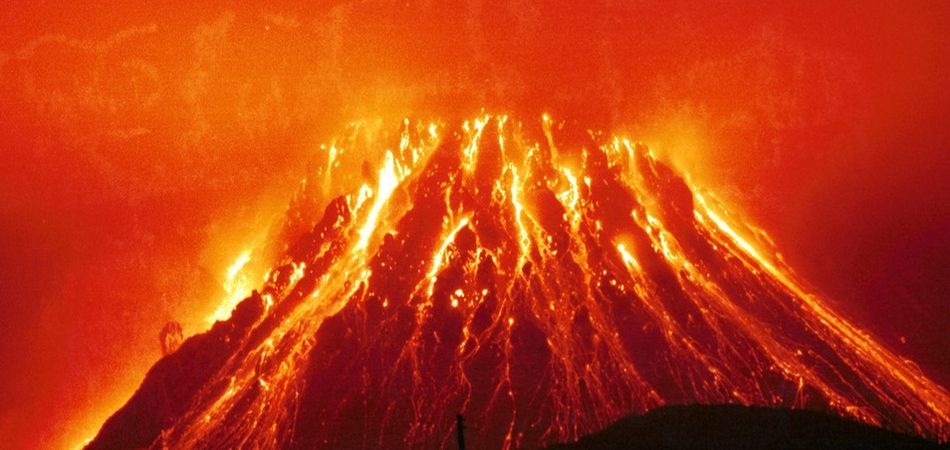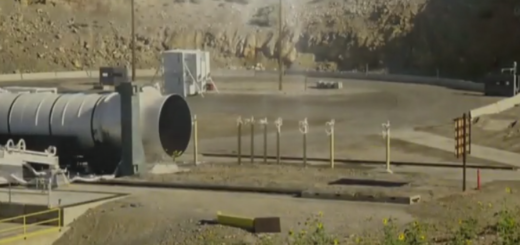Volcanic activity likely changed the Earth’s climate 200M years ago, study says

A new study suggests that volcanic eruptions severely altered the climate of the planet at the end of the Triassic period, at the height of the age of dinosaurs, more than 200 million years ago.
The research, published in Nature Communications, highlights the “deep” levels of carbon dioxide that are believed to be responsible for the mass extinction that occurred at the time.
“This biotic crisis wiped out almost half of the existing species of the late Triassic in both marine and terrestrial realms,” study co-author Manfredo Capriolo told The Guardian.
NEW ‘REAPER OF DEATH’ TYRANNOSAUR SPECIES DISCOVERED IN CANADA
The researchers were able to gather their findings from more than 200 rock samples from around the world, including North America, Morocco and Portugal.
“Our estimates suggest that the amount of CO2 that each [Central Atlantic Magmatic Province] magmatic pulse injected into the end-Triassic atmosphere is comparable to the amount of anthropogenic emissions projected for the 21st century,” the researchers added in the study’s abstract.
Capriolo added it has long been known the mass extinction event at the end of the Triassic period was caused by climate change, but it was unclear until now if volcanic activity played a part.
Researchers are still learning a great deal about the Earth’s climate from millions of years ago.
A separate study published earlier this month suggested the Antarctic climate was much warmer some 90 million years ago, with experts discovering evidence of an ancient rainforest.
Another study, published in February, found that a day was 30 minutes shorter and a year was seven days longer approximately 70 million years ago. Researchers based their conclusion on evidence that ocean temperatures reached 104 degrees Fahrenheit in the summer and 86 degrees Fahrenheit in the winter.



 Creators of mankind
Creators of mankind Description of “Tall white aliens”
Description of “Tall white aliens” Where they came from?
Where they came from? About hostile civilizations
About hostile civilizations The war for the Earth
The war for the Earth “Tall white aliens” about eternal life
“Tall white aliens” about eternal life Video: “Nordic aliens”
Video: “Nordic aliens” Aliens
Aliens Alien encounters
Alien encounters The aliens base
The aliens base UFO
UFO Technology UFO
Technology UFO Underground civilization
Underground civilization Ancient alien artifacts
Ancient alien artifacts Military and UFO
Military and UFO Mysteries and hypotheses
Mysteries and hypotheses Scientific facts
Scientific facts


















